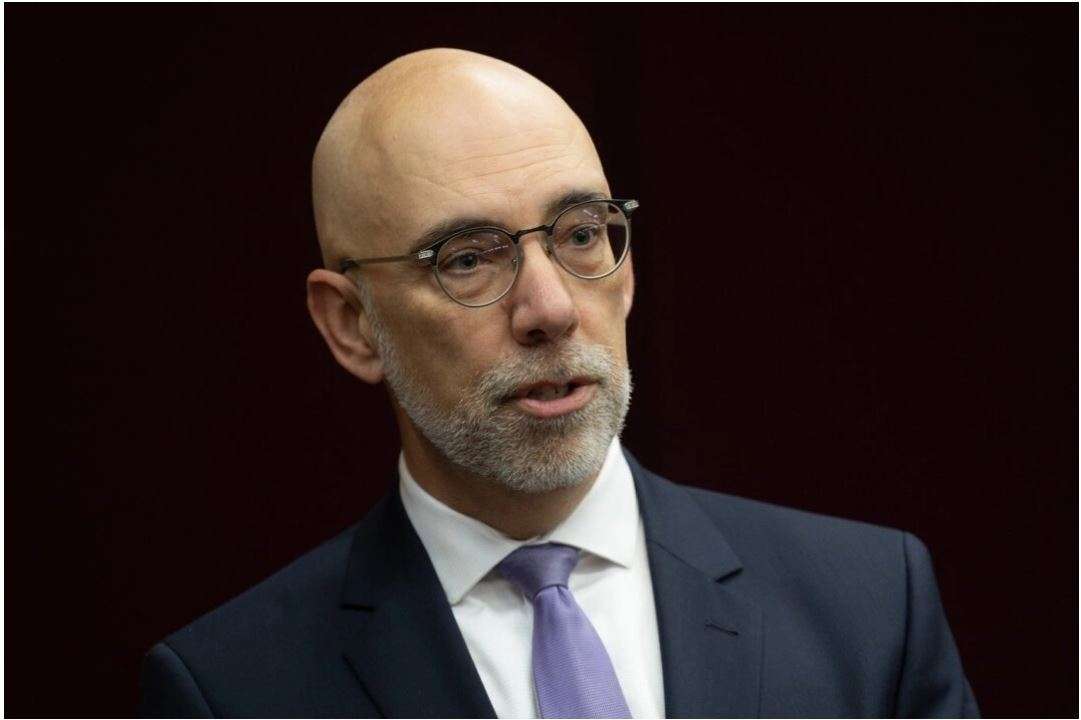
The federal budget watchdog says that an upcoming revised analysis on the economic impact of the carbon tax using proper data won’t change the previous conclusion that it leaves Canadians worse off.
Parliamentary Budget Officer (PBO) Yves Giroux came under fire with Liberals highlighting an error that was made in his previous analyses on the fuel charge, or carbon tax.
Mr. Turnbull, who serves as parliamentary secretary to the finance minister, added that more clarification should be provided about the “misstep” at a time when “misinformation on carbon pricing is running rampant.”
Mr. Giroux told The Epoch Times in an interview that a new analysis leaving out the OBPS won’t have much of an impact on his previous conclusion, “because the costs for industrial emitters are not that high.”
He also expressed surprise as to why the topic has been raised while his office had posted the notice on its website in mid-April. “Senior government officials at Environment and Climate Change knew the day we posted the correction, ministers’ offices knew as well,” he said.
Mr. Giroux said his office had published its analyses months ago and yet no one had disputed the numbers.
“That suggests to us that if there was a significant difference, for example, in OBPS and carbon tax versus carbon tax only, somebody would have pointed that out to us much, much sooner, including government officials who I’m sure scrutinize our numbers very thoroughly,” he said.
Debate around the carbon tax has become very politically charged, with Conservatives making “axing the tax” a key part of their program. Provincial premiers have also called on Ottawa to cancel the April 1 fuel charge rise amid an affordability crunch.
In this context, PBO analyses have been referred to by the Liberal government and the Tories to defend or attack the policy.
Liberals state, correctly, that the PBO assesses eight out of ten households get more back from the carbon tax and the associated rebate.
Meanwhile, Conservatives have stated, correctly up to recently as well, that the PBO assessed that eight out of ten households are worse off when the economic impacts of the carbon tax are factored in.
A new PBO analysis, which would leave out the industrial pricing system to only measure the fuel charge’s impact, is expected for the fall.
Mr. Giroux says the carbon tax has a greater economic impact since it’s applied to numerous households and corporations, whereas the OBPS only applies to big emitters, for which 80 percent of emissions are free of charge.
“It adds the price that companies pay on which there is obviously no rebate in the analysis. It certainly interferes with the data, with the conclusion,” he said in French.
The minister said he’s “very happy” the PBO recognized making an error in his analyses. “We’ll have a better idea of the situation after he releases his new analysis.”
Asked to comment on the matter, a spokesperson for Tory Leader Pierre Poilievre accused the Liberal government of having “diligently worked to shut down our industries and kill the thousands of paycheques associated with them, all the while failing to meet a single [emission] target they set for themselves.”
The “carbon tax isn’t lowering emissions and is instead simply a tax plan which is making Canadians poorer,” Sebastian Skamski said in a statement to The Epoch Times.
John Moffet, assistant deputy minister at Environment Canada, instead told the committee that a third of those reductions were attributable to carbon pricing.
“It’s not that carbon pricing has only achieved 3 percent of reductions. Carbon pricing has contributed to a third of total reductions,” he said.
Mr. Giroux said his office has looked at emissions reductions attributed to the carbon tax. “There are various numbers out there that suggest that the carbon tax does not contribute to the vast majority of emissions reduction,” he said.